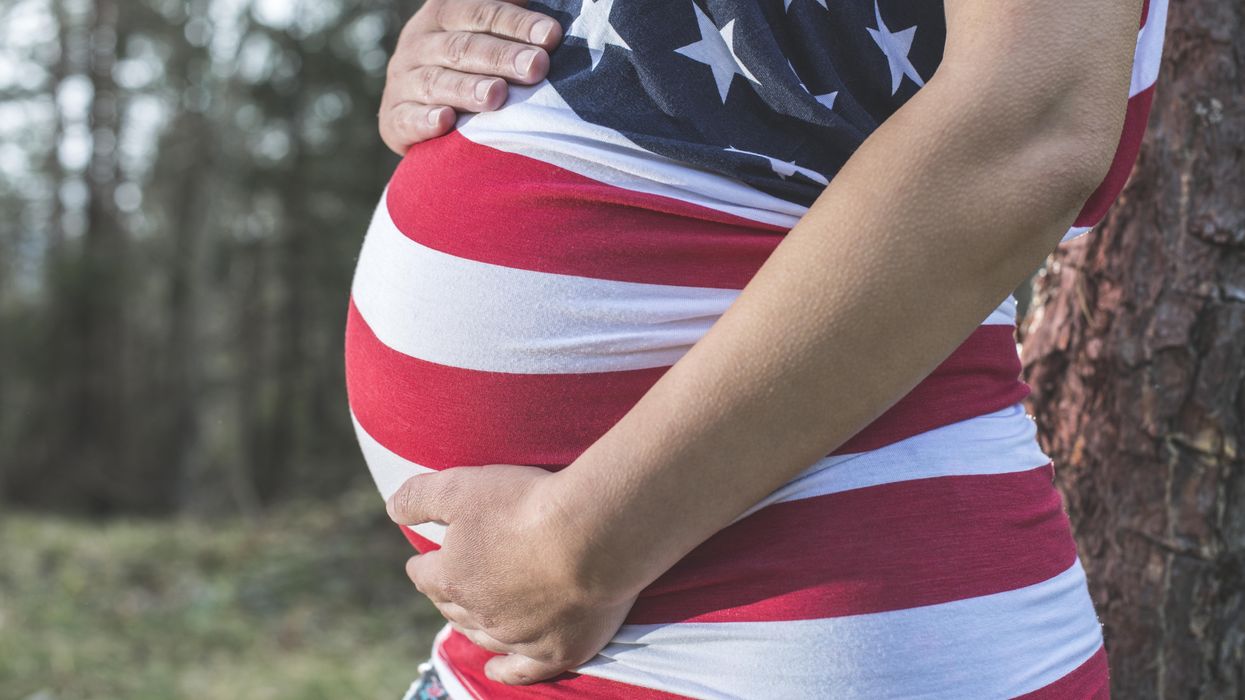Anderson edited "Leveraging: A Political, Economic and Societal Framework" (Springer, 2014), has taught at five universities and ran for the Democratic nomination for a Maryland congressional seat in 2016.
Democrats fear that former President Donald Trump and the Republicans may steal the presidential election in 2024 or some races in 2022. If they do, the narrative goes, we may lose our democracy.
This narrative, though accurate in some ways, is largely erroneous.
If the Republicans use legal but arguably anti-democratic means to put, say, Florida Gov. Ron DeSantis into the White House, this does not mean we will lose our democracy. Admittedly, if Trump were to be elected again the country would be more at risk, but stolen elections in themselves do not extinguish democracies.
Democracy is not like pregnancy, which is binary. It can be measured in degrees. Indeed, various international organizations do just that, and U.S. democracy has been losing points for years. According to the Economist Intelligence Unit's Democracy Index, the United States in February 2022 ranked 26 out of 167 countries in terms of strength of democracy, with a total rating of 7.85 out of 10.
Yes, we may drop to 6.85 or lower in 2024. But democracy would not be on trial with the options of winning or losing – like a candidate.
If, for example, some states give their legislatures the right to resolve election disputes, and the Supreme Court does not take away that right, and, say, two battleground states choose the Republican candidate even though the Democrat has more votes, it will be very difficult to prove that we lost our democracy.
Instead, one could argue in this circumstance that our democracy was weakened if the courts had lost a say in election disputes. What will most likely happen is there will be a series of court cases and protests and essentially a stalemate on the question about whether democracy has been lost. Our last two presidential elections have basically had this same aftermath. It is most unfortunate, but it is a battle between very polarized viewpoints.
Moreover, democracy is about both elections and governance, and if Congress is divided or the majorities are modest it will be hard for a president who many believe is illegitimate to rule like Mussolini. The truth is that even if one party shifted 22,000 or 100,000 or even 1,000,000 votes to their candidate, this does not mean the United States of America would crash. Our system of governance might remain essentially the same.
Indeed, most of our democracy relies on what happens between elections, and the majority of citizens do not even vote in presidential primaries, let alone either the primaries or general elections in midterm cycles. This is a shame, even tragic. But it is true.
Voting, though vital, is only one part of citizenship. We must preserve its value, but there is much in our democratic society that is not about voting and elections. Issue politics drives the legislative process, but election politics gets 10 times more media attention.
The country could even enter a period where our democracy rating rises after it falls, just like many stocks and mutual funds.
Make no mistake, core democratic norms are at stake. If we have a military takeover or a coup along the lines of Jan. 6, 2021, that would be different. But Joe Biden is the president today and it is hard to see how there would be a military takeover in 2024.
In most potential scenarios we are not at risk of becoming a banana republic. We are, however, at risk of seeing further decline in the nature of our democracy. The president is neither a king nor a dictator. So long as we retain a separation of powers in Washington, we remain a representative democracy, even if its value decreases.
Thus it is best not to look at our future in such stark terms. We face real threats, but our destiny is not determined by what happens in the next two elections. We must be prepared to keep fighting for strong democratic values, recognizing that different parts of our massive democratic system may weaken as others may strengthen.
There are, in fact, two election reform bills that have been drafted by a bipartisan group of senators, including eight Republicans, that it would be in the best interest of our democracy to have passed.
The first is the Electoral Count Reform and Presidential Transition Improvement Act. Among other things, this bill clearly defines the very limited role of the vice president in the process of certifying the votes from the Electoral College, makes it more difficult for members of Congress to raise objections to the counting process, and would implement barriers preventing the states from sending fake electors to Washington. The second bill, the Enhanced Election Security and Protection Act, is designed to protect election workers from intimidation and create a more reliable mail-in ballot system.
If these bills are not passed, our democratic nation is at risk of being weakened. Yet it is an overstatement to say that we are at risk of losing our democracy.




















